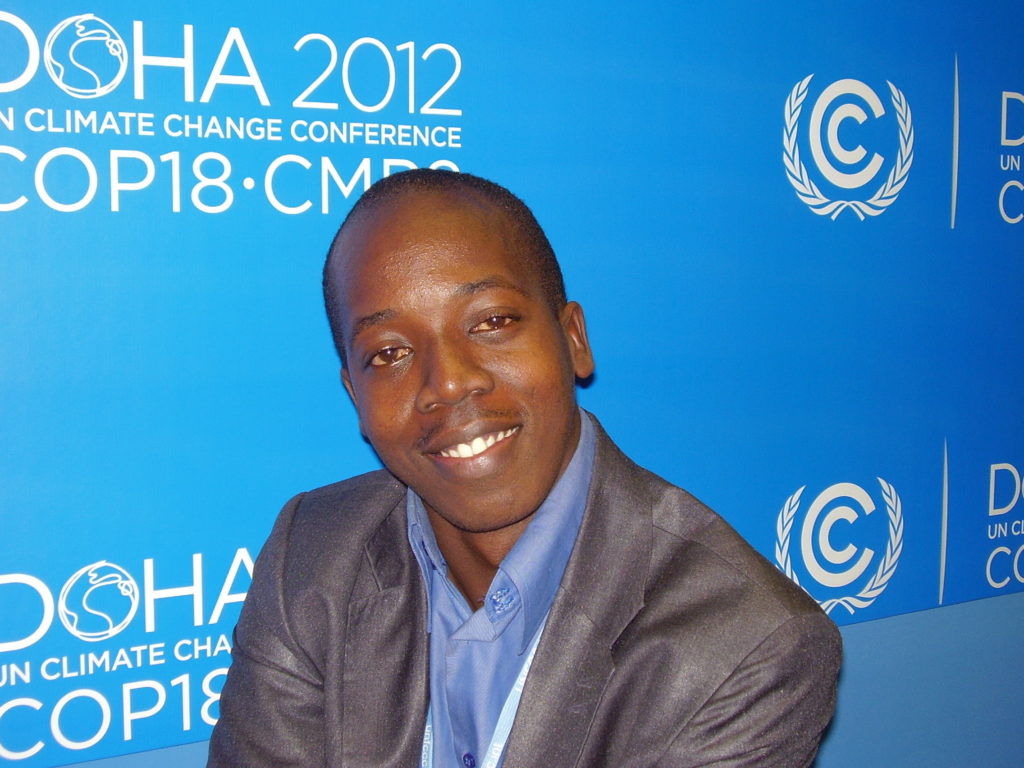Doha: Week 2
20 December 2012

Baimey Ange David Emmanuel
ONG JVE Cote d'Ivoire
For me, the second week at Doha was filled with side events and policy meetings.
To begin, Monday, December 3, the Climate & Development Network (RC & D) coordinates and I had a meeting with the French delegation and the French ambassador for climate change, Serge Lepeltier in the hall of the Delegation European French Pavilion. Present were 12 members of the RC & D from Côte d'Ivoire, DRC, France, Senegal, Mali, Niger, Chad and Togo. On the French side, we noted the presence of seven French delegation representatives.
The discussions focused on key issues in negotiations, including financing issues, the Kyoto Protocol, the NAMAs and development.Exchanges revolved around NAMAs were threefold: ambition is not enough to stay below 2 °C, the funding concerning the Fast start is currently expired and the importance remains of hot air Poland.
The Climate and Development Network then held side events to reflect on who will replace ODD MDGs. Four panelists includingbfrom Togo, Mali and France presented their work on agriculture, energy and the mobilization of civil society. The goal of this side event was for many French to express their views and ideas on the evolution of the UNFCCC process.
I had several working sessions with members of civil society to discuss the French disaster risk management, REDD and the issue of innovative financing.We continue to work on the involvement of NGOs and taking into account aspects of development in the resolution of climate change.
Globally, I think that it is important to keep with multilateralism processes concerning climate change (even if it is dangerous for those most vulnerable because the developing countries will impose their point of views.)
As I said in the JVE International press release, "While Doha was able to streamline the process and policies for international negotiations on climate change, through the adoption of the second commitment period under the Kyoto Protocol, ending the various discussion groups set up in Bali in 2007 and paving the way for discussions on the work plan for the post-2020 could lead to an international climate agreement involving all countries history. But the reality is that the UN still cannot intend to include toxic countries. Doha is a victory for Canada, Russia, Japan, Poland and the USA.

